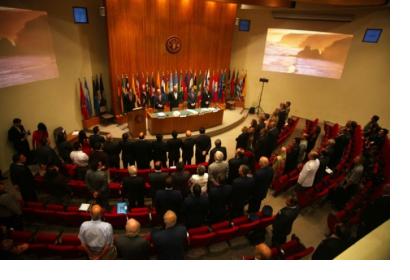On 12 to 16 November 2012, UNOOSA organized the Workshop "Space Technology Applications for Socio-Economic Benefits" in Santiago de Chile, Chile. The Workshop was the third activity of the UN Progamme on Space Applications focusing exclusively on socio-economic benefits of space technology applications. In 2010 and 2011 two previous workshops were held in Turkey and Vietnam.
The overall objective of the workshop was to increase awareness among policy makers and planners on the socio-economic benefits of utilizing space technology. The workshop contributed to international cooperation by providing opportunities to exchange in-depth information on Space Technology Applications for Socio-Economic Benefits.
Specific objectives for this workshop were to: (a) share information on research and applications studies that have demonstrated the use of space technology for societal benefit; (b) address principles and mechanisms for enhancing national, regional, and international cooperation in space technology development and applications; (c) demonstrate the benefits of various space technology applications for priorities hihghlighted by the RIO+20 United Nations Conference on Sustainable Development; and (d) promote integration of space solutions into national development agenda, including building institutional and governance frameworks.
The Workshop was attended by approximately 140 policymakers, decision makers and senior experts from international, regional and national institutions, governmental institutions, research and academic institutions, multi-lateral and bi-lateral development agencies, non-governmental organizations, and industry from the following countries: Argentina, Azerbaijan, Belarus, Belgium, Bolivia (Plurinational State of), Brazil, Chile, China, Colombia, Costa Rica, Cuba, Ecuador, France, Germany, Guatemala, Honduras, India, Libya, Mexico, Pakistan, Sudan, Thailand, Tunisia, Ukraine, United Kingdom, United States, and Uruguay.
The workshop was hosted by the Centro de Información de Recursos Naturales (CIREN) of Chile and organized in cooperation with the International Society for Photogrammetry and Remote Sensing (ISPRS), the National Aeronautics and Space Administration (NASA) of the United States of America and the Food and Agriculture Organization of the United Nations (FAO) Chile. The workshop was cosponsored by the Secure World Foundation (SWF).

